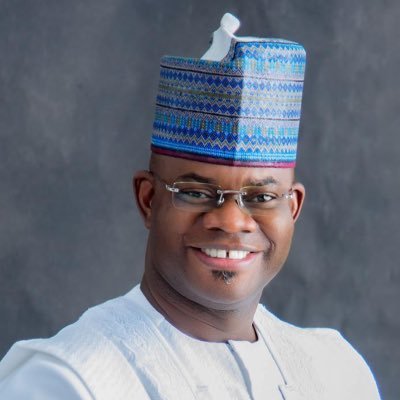Nigeria News
EFCC: 120 banks MDs, others given final warning to declare assets before June ending

The Economic and Financial Crimes Commission (EFCC} has issued a final warning to over 120 managing directors and top executives of banks to submit their asset declaration forms.
The anti-graft agency gave the top bankers till June ending to obey the order even as the initial deadline of June 14 has passed.
The EFCC Chairman, Abdulrasheed Bawa, had initially in March given top bankers, among others, till June 1, 2021, to declare their assets in line with the Bank Employees, ETC (Declaration of Assets) Act 1986, with defaulters said to risk 10 years in jail if found guilty by any Federal High Court.
But the anti-graft agency extended the deadline till June 14 to allow bankers to comply with the order effectively.
According to Punch, the EFCC chairman has sent a final reminder to all the affected banks executives and given them till the end of June to declare their assets.
“The truth is that this law has been in place for over 35 years, but it was hardly ever enforced and so these bankers would just declare anything or not declare at all. However, the EFCC is now demanding the declaration forms as part of moves to sanitise the system.
“To this effect, the chairman has written a reminder to the banks, asking all top executives to comply latest by the end of June,” an investigator said.
Findings showed that well over 120 managing directors, deputy managing directors and executive directors of 19 deposit money banks are affected by the EFCC’s order.
While Access Bank has 16 board members, United Bank of Africa has 15, Sterling Bank and EcoBank have 13 members each, while First Bank, Guaranty Trust Bank and Fidelity Bank have 12 members each as contained on their official websites.
Others are Zenith Bank, 11; Wema Bank, 11; Union Bank 11; First City Monument Bank, 9; and Unity Bank, 8.
According to the Bank Employees, ETC (Declaration of Assets) Act 1986, bankers should declare their assets through the appropriate authority like the Office of the Secretary to the Government of the Federation. But the forms were hardly ever scrutinised, a trend which the EFCC seeks to change.
Section 1 of the Act states, “Every employee of a bank shall, within fourteen days of the commencement of this Act, make a full disclosure of all his assets.
“In the case of a new employee, he shall within 14 days of assuming duty with the bank make a full disclosure of all his assets at the time of his assuming duty; and for the purpose of this subsection, a transfer or secondment from one bank to another shall be treated as a new employment.”
Section 2 of the Act reads, “The full disclosure of assets required under Section 1 of this Act shall be made in the manner prescribed in the Declaration of Assets Form contained in Form A of the Schedule to this Act and shall be executed before and attested to by the Registrar of a High Court, the Court of Appeal or the Supreme Court.
“The President or the appropriate authority may from time to time prescribe such other forms as may be necessary to achieve the purpose and intendment of this Act.”
Speaking in March, EFCC chairman, Bawa, noted that the anti-corruption agency was worried about the role that financial institutions and bankers played in corruption.
He said, “We understood that at the tail end of every financial crime, it is for the criminal to have access to the funds that he or she has illegitimately acquired and we are worried about the roles of financial institutions.
“We have discussed, but we hope that all financial institutions, particularly the bankers, will declare their assets as provided for by the law, in accordance with the Bank Employees Declaration of Assets Act.
“The EFCC, come June 1, 2021, will be demanding the asset declaration forms filled by the bankers so that the line that we have drawn from June 1 is really complied with by bankers in particular.”
























